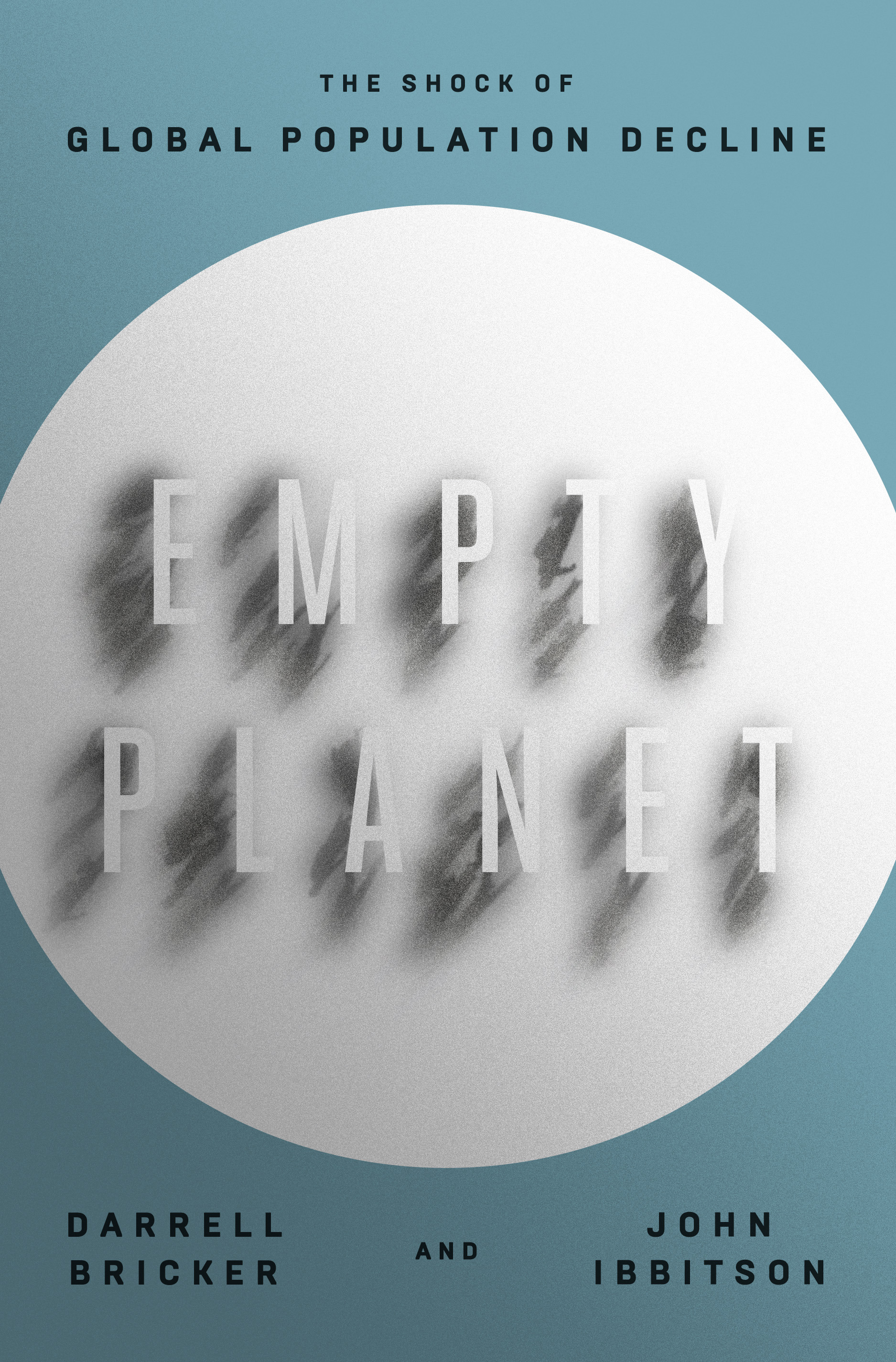Conventional wisdom tells us that there are too many humans on this planet. But the data disagree. In a new book titled Empty Planet: The Shock of Global Population Decline, Darrell Bricker and John Ibbitson argue that the world is about to face radical change due to depopulation. The following is an excerpt from the book.
The great defining event of the twenty-first century—one of the great defining events in human history—will occur in three decades, give or take, when the global population starts to decline. Once that decline begins, it will never end. We do not face the challenge of a population bomb but of a population bust—a relentless, generation-after-generation culling of the human herd. Nothing like this has ever happened before.
 If you find this news shocking, that’s not surprising. The United Nations forecasts that our population will grow from seven billion to eleven billion in this century before leveling off after 2100. But an increasing number of demographers around the world believe the UN estimates are far too high. More likely, they say, the planet’s population will peak at around nine billion sometime between 2040 and 2060, and then start to decline, perhaps prompting the un to designate a symbolic death to mark the occasion. By the end of this century, we could be back to where we are right now, and steadily growing fewer.
If you find this news shocking, that’s not surprising. The United Nations forecasts that our population will grow from seven billion to eleven billion in this century before leveling off after 2100. But an increasing number of demographers around the world believe the UN estimates are far too high. More likely, they say, the planet’s population will peak at around nine billion sometime between 2040 and 2060, and then start to decline, perhaps prompting the un to designate a symbolic death to mark the occasion. By the end of this century, we could be back to where we are right now, and steadily growing fewer.
Populations are already declining in about two dozen states around the world; by 2050 the number will have climbed to three dozen. Some of the richest places on earth are shedding people every year: Japan, Korea, Spain, Italy, much of Eastern Europe. “We are a dying country,” Italy’s health minister, Beatrice Lorenzin, lamented in 2015.
But this isn’t the big news. The big news is that the largest developing nations are also about to grow smaller, as their own fertility rates come down. China will begin losing people in a few years. By the middle of this century, Brazil and Indonesia will follow suit. Even India, soon to become the most populous nation on earth, will see its numbers stabilize in about a generation and then start to decline. Fertility rates remain sky-high in sub-Saharan Africa and parts of the Middle East. Even here, though, things are changing as young women obtain access to education and birth control. Africa is likely to end its unchecked baby boom much sooner than the UN’s demographers think.
…
Population decline isn’t a good thing or a bad thing. But it is a big thing. A child born today will reach middle age in a world in which conditions and expectations are very different from our own. She will find the planet more urban, with less crime, environmentally healthier but with many more old people. She won’t have trouble finding a job, but she may struggle to make ends meet, as taxes to pay for health care and pensions for all those seniors eat into her salary. There won’t be as many schools, because there won’t be as many children.
…
As we settle into a world growing smaller, will we celebrate or mourn our diminishing numbers? Will we struggle to preserve growth, or accept with grace a world in which people both thrive and strive less? We don’t know. But it may be a poet who observes that, for the first time in the history of our race, humanity feels old.



